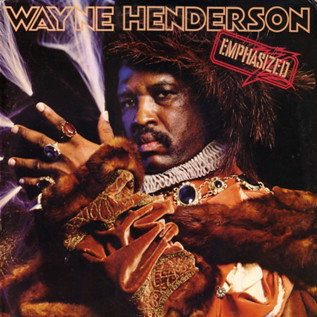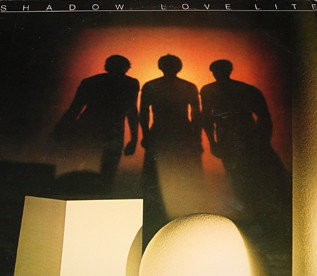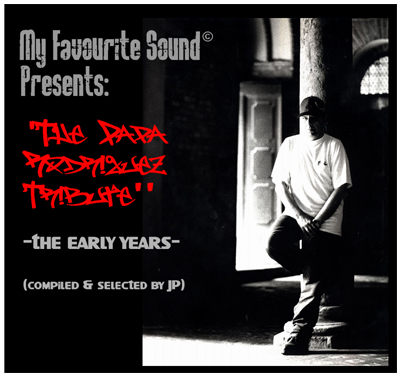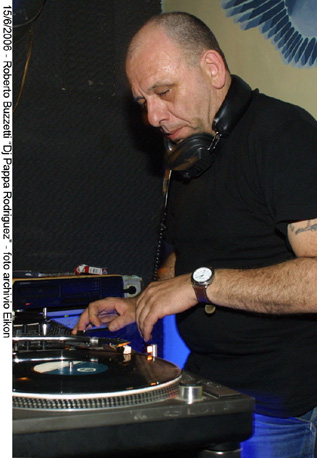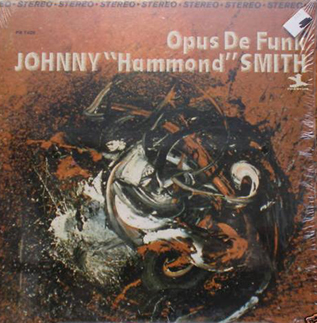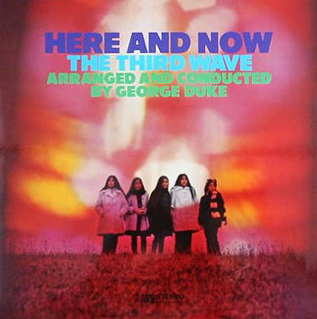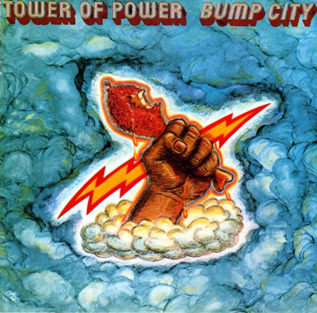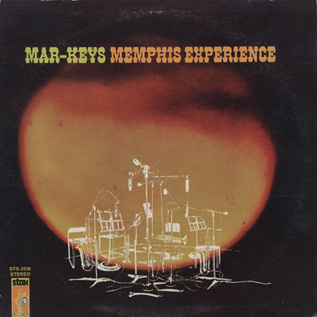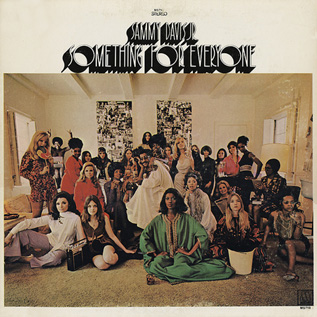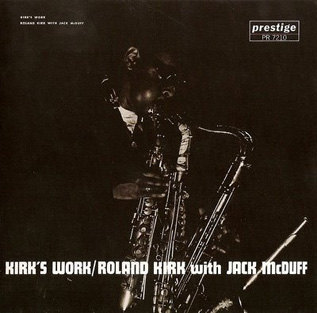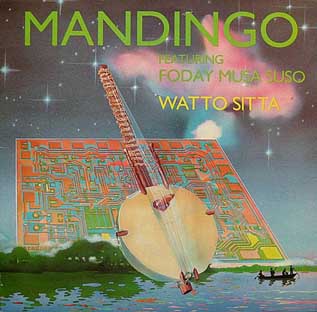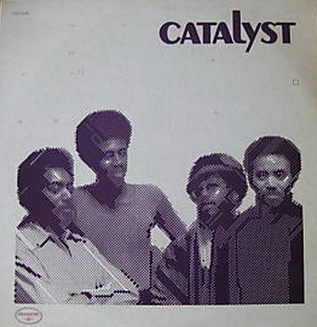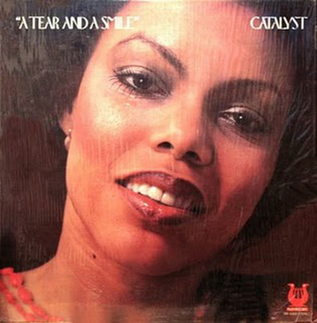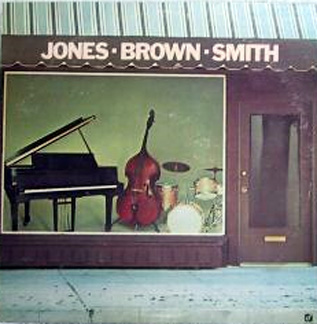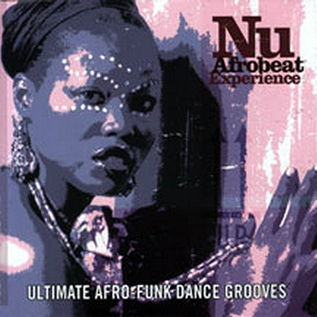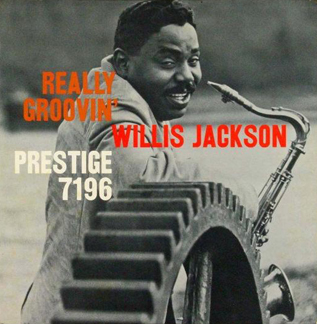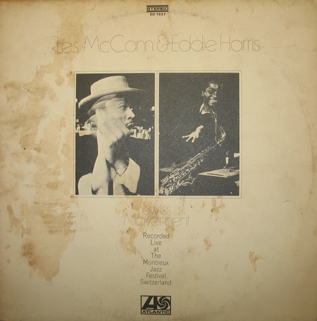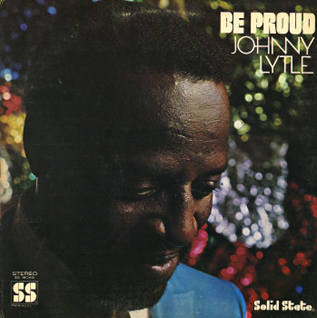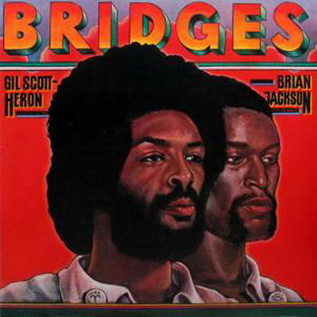
Gil Scott-Heron & Brian Jackson
“Bridges”
( LP Arista Records, 1977 )
Catalog # AB-4147
Tracklisting:
A1 Hello Sunday! Hello Road!
A2 Song Of The Wind
A3 Racetrack In France
A4 Vildgolia (Deaf, Dumb & Blind)
B1 Under The Hammer
B2 We Almost Lost Detroit
B3 Tuskeegee #626
B4 Delta Man (Where I’m Coming From)
B5 95 South (All Of The Places We’ve Been)
Personnel & Credits:
Bilal Sunni Ali - Saxophone
Joe Blocker - Drums
Danny Bowens - Bass
Reggie Brubane - Drums
Tony Duncanson - Percussion
Larry Fallon - Arranger, Producer
Marlo Henderson - Guitar
Brian Jackson - Flute, Keyboards, Producer
Fred Payne - Guitar
Gil Scott-Heron - Guitar, Piano, Producer
Delbert Tailor - Trumpet
Barnett Williams - Percussion
Tom Wilson - Producer
Review:
Gil Scott-Heron, Brian Jackson, and the Midnight Band take a slightly different approach with their 1977 effort, Bridges. With less of the gaping and world-infused sound prevalent on previous albums, the songs are more concise and Scott-Heron comes into his own as a singer depending less on his spoken word vocal style. This album may not be one of his better-known releases (the long out of print LP is slated to make it’s reissue debut in the fall of 2001), but the excellent songwriting exposes Scott-Heron at the height of his powers as a literary artist. The social, political, cultural, and historical themes are presented in a tight funk meets jazz meets blues meets rock sound that is buoyed by Jackson’s characteristic keyboard playing and the Midnight Band’s colorful arrangements. Scott-Heron’s ability to make the personal universal is evident from the opening track, “Hello Sunday! Hello Road!,” all the way through to the gorgeous “95 South (All of the Places We’ve Been).” The most popular cut on the album, “We Almost Lost Detroit,” which shares its title with the John G. Fuller book published in 1975, recounts the story of the nuclear meltdown at the Fermi Atomic Power Plant near Monroe, MI, in 1966. This song was also contributed to the No Nukes concert and album in 1980. Along with the two records that would follow in the late 70s, Bridges stands as one of Scott-Heron’s most enjoyable and durable albums.
By Jeff Schwachter
(AMG. Copyright © 2010 All Media Guide, LLC. Content provided by All Music Guide ®, a trademark of All Media Guide, LLC. All rights reserved.)

Gil Scott-Heron And Brian Jackson
“It’s Your World”
( 2XLP Arista Records, 1976 )
Catalog # AL 5001
Tracklisting:
A1 It’s Your World 3:52
A2 Possum Slim 6:00
A3 New York City 4:45
B1 17th Street 5:45
B2 Tomorrow’s Trane 7:20
B3 Must Be Something 5:20
C1 Home Is Where The Hatred Is 12:10
C2 Bicentennial Blues 8:40
D1 The Bottle 13:30
D2 Sharing 5:55
Personnel & Credits:
Bilal Sunni Ali - Flute, Sax (Tenor), Horn Arrangements
Ted Bodner - Assistant Engineer
Danny Bowens - Arranger, Bass (Electric), Vocals
Reggi Brisbane - Percussion, Drums
Victor Brown - Vocals
Malcolm Cecil - Remastering
Tony Duncanson - Percussion, Bongos, Conga, Timbales
Brian Jackson - Synthesizer, Flute, Piano, Piano (Electric), Vocals, Producer
Ralph Moss - Engineer, Mixing
Gil Scott-Heron - Guitar, Piano, Arranger, Piano (Electric), Vocals, Producer, Liner Notes
Jerry Solomon - Assistant Engineer
Delbert Taylor - Trumpet
Neal Teeman - Assistant Engineer
Barnett Williams - Percussion, Conga
Tom Wilson - Associate Producer
Review:
This Gil Scott-Heron double album, roughly two thirds of which was recorded live in Boston on July 2-4, 1976, makes the most of its Centennial-centric time frame. Between the American flag striped cover art and Heron’s spoken word spiel on an 8-and-a-half minute poem/rant “Bicentennial Blues,” the album loses little of its impact, regardless of how the years have mildewed once fresh political topics like Nixon, Agnew, and Watergate. Four of its songs are studio recordings (”It’s Your World,” “Possum Slim,” “New York City,” and “Sharing”), and even though they’re up to Heron’s usual jazz/blues/pop standards, the disc is most effective on the concert tracks. As he explains in the 2000 penned liner notes, The Midnight Band was a compelling live unit and one listen to the brisk, electrifying, 13-minute rendition of “The Bottle,” one of Heron’s most penetrating tracks, is all you’ll need to understand why. More importantly, like the best protest music, these tunes have lost none of their lyrical edge or incisiveness throughout the years. Musically the band is taut and rehearsed down to the finest time change, yet loose enough to open up on the jams. The heavy Latin percussion/flute/piano — but remarkably guitar-less — sound is equal parts Santana and Mongo Santamaria with a strong jazz current throughout, especially on the John Coltrane tribute “Trane,” featuring tenor hornman Bilal Sunni-Ali’s fiery lead. Scott-Heron’s deep, mellifluous voice is alternately soothing and cutting, infusing the music with heart and soul, while keeping the sound focused even during the longer improvisations. Only a dated ’70s drum solo belies the year this was recorded. Chestnuts like “Home Is Where the Hatred Is” explode in extended live versions that become definitive readings of the tunes. Remastered for its reissue, It’s Your World crackles with energy, presenting an accomplished band at their peak and placing the listener practically on stage for the live tracks with acoustics that are full, yet airy and spacious. One of Gil Scott-Heron’s best albums as well as a compelling musical time capsule, the disc is proof of the artist’s musical and lyrical acuity and is a moving listening experience.
By Hal Horowitz
(AMG. Copyright © 2010 All Media Guide, LLC. Content provided by All Music Guide ®, a trademark of All Media Guide, LLC. All rights reserved.)
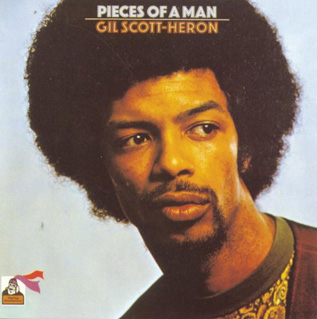
Gil Scott-Heron
”Pieces Of A Man”
( LP Flying Dutchman Records, 1971 )
Catalog # FD 10143
Tracklisting:
A1 The Revolution Will Not Be Televised 2:59
A2 Save The Children 4:55
A3 Lady Day And John Coltrane 3:10
A4 Home Is Where The Hatred Is 3:15
A5 When You Are Who You Are 3:01
A6 I Think I’ll Call It Morning 3:45
B1 Pieces Of A Man 4:22
B2 A Sign Of The Ages 4:05
B3 Or Down You Fall 3:08
B4 The Needle’s Eye 4:01
B5 The Prisoner 8:39
Personnel & Credits:
Artwork By [Design] - Haig Adishian
Bass, Bass [Electric] - Ron Carter
Conductor - Johnny Pate
Drums - Pretty Purdie
Electric Guitar - Burt Jones
Flute, Saxophone - Hubert Laws
Mixed By - Bob Simpson , Geoff Haslam
Mixed By, Engineer [Remix] - Ray Hall
Photography - Charles Stewart , Wayne Tucker
Piano, Electric Piano - Brian Jackson
Producer [Assistant] - Lillian Seyfert
Written-By - Brian Jackson (tracks: A5 to B5) , Gil Scott-Heron
Notes:
Recorded: April 19 & 20, 1971
All compositions published by Bob Thiele Music Ltd.- ASCAP
Review:
After decades of influencing everyone from jazz musicians to hip-hop stars, Pieces of a Man set a standard for vocal artistry and political awareness that few musicians will ever match. Scott-Heron’s unique proto-rap style influenced a generation of hip-hop artists, and nowhere is his style more powerful than on the classic “The Revolution Will Not Be Televised.” Even though the media — the very entity attacked in this song — has used, reused, and recontextualized the song and its title so many times, its message is so strong that it has become almost impossible to co-opt. Musically, the track created a formula that modern hip-hop would follow for years to come: bare-bones arrangements featuring pounding basslines and stripped-down drumbeats. Although the song features plenty of outdated references to everything from Spiro Agnew and Jim Webb to The Beverly Hillbillies, the force of Scott-Heron’s well-directed anger makes the song timeless. More than just a spoken word poet, Scott-Heron was also a uniquely gifted vocalist. On tracks like the reflective “I Think I’ll Call It Morning” and the title track, Scott-Heron’s voice is complemented perfectly by the soulful keyboards of Brian Jackson. On “Lady Day and John Coltrane,” he not only celebrates jazz legends of the past in his words but in his vocal performance, one that is filled with enough soul and innovation to make Coltrane and Billie Holiday nod their heads in approval. More than three decades after its release, Pieces of a Man is just as — if not more — powerful and influential today as it was the day it was released.
By Jon Azpiri
(AMG. Copyright © 2010 All Media Guide, LLC. Content provided by All Music Guide ®, a trademark of All Media Guide, LLC. All rights reserved.)
By Celo

